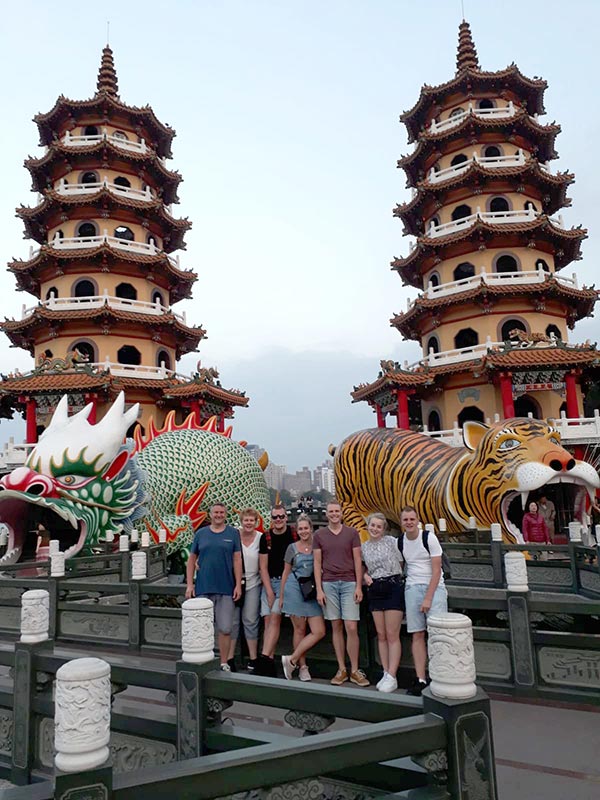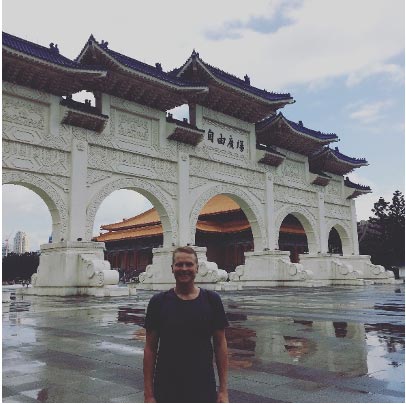‘Critical Heritage Studies of Asia and Europe’: A Reflection of 2021 and Beyond
In 2021, the Dual Degree program ‘Critical Heritage Studies of Asia and Europe’ celebrated a special five-year anniversary. Existing since 2013, the program was overhauled in 2016 to allow students from Yonsei University and National Taiwan University (NTU) to study at Leiden via this program and to have Leiden University students study there in turn.
As the second Leiden student to study at NTU, I have shared my experiences previously in The Newsletter 1 and on the IIAS podcast. 2 In 2021, I was asked by Philippe and Ute to write a report and reflection on the significance of the program and the advantages and challenges of the program to date. I was happy to comply and wrote a preliminary report for the institute, based on a previous report by Meredith Holmgren (2011), online research about existing programs on heritage and critical heritage studies worldwide, and a reflection by participating (former) students. Given the 10-year anniversary of the degree (2013-2023), I would like to take this opportunity to share some of the results of this unpublished report.

Visiting Kaohsiung, Taiwan, with family (courtesy of the author).
In 2021, at least 108 programs that deal with heritage as a minor or major were identified. 3 Here, a clear discrepancy is noticeable: while in Latin America, no programs were identified, Europe alone had 66 programs (or 61 percent of the total), with 32 in the United Kingdom and nine in the Netherlands. Both countries have the advantage of providing programs in English and tend to teach conservation as a discipline. In Asia, eight programs were identified, of which half focused on cultural management. 4 In African countries, the majority of the seven programs focus on heritage as a source of economic development. In North America, 17 programs were identified, of which all except one are in the United States and specialize in conservation and cultural heritage management. Almost all identified programs do not engage with critical heritage studies, do not provide opportunities to study abroad, nor do they implement a cross-cultural perspective. This is what makes the Dual Degree unique: a combination of Critical Heritage Studies as a discipline combined with Area Studies and gaining experience in two continents.
At the time, the report leaned on the experience of students, either by interview or published texts in The Newsletter. These experiences show untapped potential and a need for better communication. For Leiden students, they lacked specialization in heritage studies or courses in English at Yonsei and NTU. Furthermore, the indication of graduating in one year proved to be difficult due to different academic structures. Students coming to Leiden from Korea or Taiwan noted the lack of Europe as a case study in the program at Leiden and missed the exemption of credits Leiden students could use at Yonsei or NTU.

Visiting National Chiang Kai-shek Memorial Hall, Taipei (courtesy of the author).
After the report, IIAS and the universities took these comments seriously: communication has improved, such that students have been made more aware of the different academic cultures and expectations. At Leiden, the courses on heritage have expanded more broadly to also discuss Europe and Central Asia, and new cooperations with Indonesia and North Africa are sought. At NTU and Yonsei, extra courses on heritage politics have been added that allow students to research other regions such as Southeast Asia, and communication has improved overall.
Therefore, I am optimistic about the future of the Dual Degree. It seems it is not only critical of heritage studies, but also of itself. With more opportunities and partners being developed, the program will only become more popular and promote a better experience for all future students, and no doubt it will continue to be a unique place to question the discourses of heritage.
Edwin Pietersma, Bansomdejchaopraya Rayabhat University, Thailand